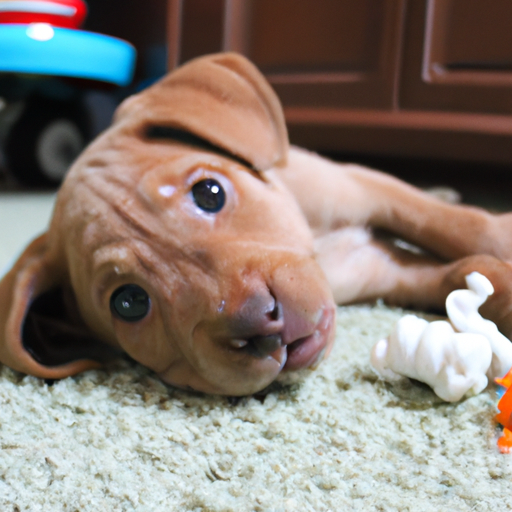As a loving caregiver, you’re bound to ask about every stage of your furry friend’s development. Just like humans, dogs go through a teething stage. But when do dogs start teething? Let’s dive in and explore the topic in detail.
Understanding the Basics
When you brought that adorable puppy home, you probably never considered that you would be dealing with puppy teething. Yes, just like human babies, puppies also go through teething. It’s a process that can be distressing for both you and your pup, but it’s a natural part of their growth and development.
The Timeline of Puppy Teething
Here’s how the timeline typically breaks down:
- 2-4 weeks: Puppies are born without teeth. The first set, known as milk teeth or deciduous teeth, begin to appear when your puppy is about 2-4 weeks old.
- 3-6 months: At around 3-6 months of age, your puppy will begin losing its milk teeth. These are replaced by permanent adult teeth.
- 6-8 months: By the time your dog is 6-8 months old, they should have all 42 of their adult teeth.
Teething Symptoms
During the teething process, there are several symptoms that your puppy may display. These include:
- Chewing on everything
- Drooling more than usual
- Bleeding gums
- Missing teeth
- Bad breath
Teething can be an uncomfortable process for your puppy, so it’s important to be patient and understanding.
How to Help Your Teething Puppy
As a caregiver, you’ll want to do everything you can to ease your puppy’s discomfort. Here are some tips:
- Provide Teething Toys: There are many toys available that are designed specifically for teething puppies. These can provide some relief for your puppy’s sore gums.
- Use Frozen Treats: Frozen carrots or special dog-friendly ice creams can soothe your puppy’s gums.
- Be Patient and Understanding: Remember, your puppy is not chewing on things to annoy you. They are in pain and are simply trying to relieve their discomfort.
When to See a Vet
While puppy teething is a normal process, there are some situations where you should seek veterinary advice:
- If your puppy seems to be in severe pain
- If adult teeth are not coming in as they should
- If your puppy is not eating
Always trust your instincts as a caregiver. If something doesn’t feel right, it’s better to be safe and consult your vet.
The Importance of Dental Care
Once your dog’s permanent teeth are in place, it’s important to start a regular dental care routine. This should include:
- Regular brushing
- Dental chews
- Regular check-ups with your vet
Good dental care can prevent a range of health issues and keep your dog’s teeth and gums healthy.
FAQs About Puppy Teething
Q: How long does puppy teething last?
A: Puppy teething generally lasts until about 6-8 months of age.
Q: Is puppy teething painful?
A: Just like with human babies, teething can cause discomfort and pain for your puppy.
Q: What can I give my puppy for teething pain?
A: Providing teething toys and frozen treats can help to relieve your puppy’s teething pain. If your puppy seems to be in severe pain, it’s always best to consult your vet.
Q: Can puppy teething cause diarrhea?
A: Some puppies may experience diarrhea during the teething process. If this happens, make sure your puppy is staying hydrated and consult your vet if it continues or if there are other signs of illness.
By understanding the teething process, you can better support your puppy during this stage of their development. Remember, every dog is unique, and this information is meant as a general guide. Always consult with your vet if you have concerns about your puppy’s health.



